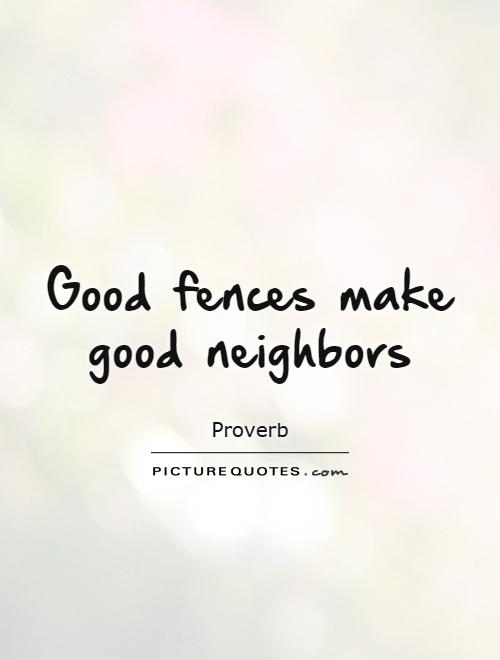Do good fences make good neighbors? Or so to speak, do fences make good neighbors? In Robert Frost's poem, "Mending Wall", we see two sides of the story where one side is adamant about having a wall between them, repeating the phrase: "Good fences make good neighbors." Metaphorically speaking, the wall can represent a sort of misunderstanding between two people, or the communication barriers that go between them.
But does having fences really make good neighbors? One can look at it two ways: it either does or doesn't. Fences are there to protect or sort of set a boundary between areas of land. Dictionary.com defines it as "a barrier enclosing or bordering a field" or "used to prevent entrance, to confine, to mark a boundary". So a fence, really, is there to prevent people from getting in; to prevent one's neighbors from getting in or knowing about one's business, setting off a sort of mysterious aura.
Mystery thus, leads to curiosity and like the cliched saying goes: curiosity often kills the cat. So having a fence does not necessarily bring a positive result, as oftentimes people with too-high-a-fence end up having nosy neighbors who want to know everything about their neighbors. But at the same time, a fence gives a person privacy, that little bubble of comfort everyone ought to have. And so I think having fences gives each neighbor a sense of protection and they learn to respect each other's spaces and remain civil and friendly to each other. A fence is there to mark a boundary and by doing so it indicates how one shows respect to each other's property, giving them a mutual understanding.
And so I think that fences make good neighbors because it gives each person a sense of mutual understanding or camaraderie through their fences, because indirectly, they respect each other's property.

No comments :
Post a Comment